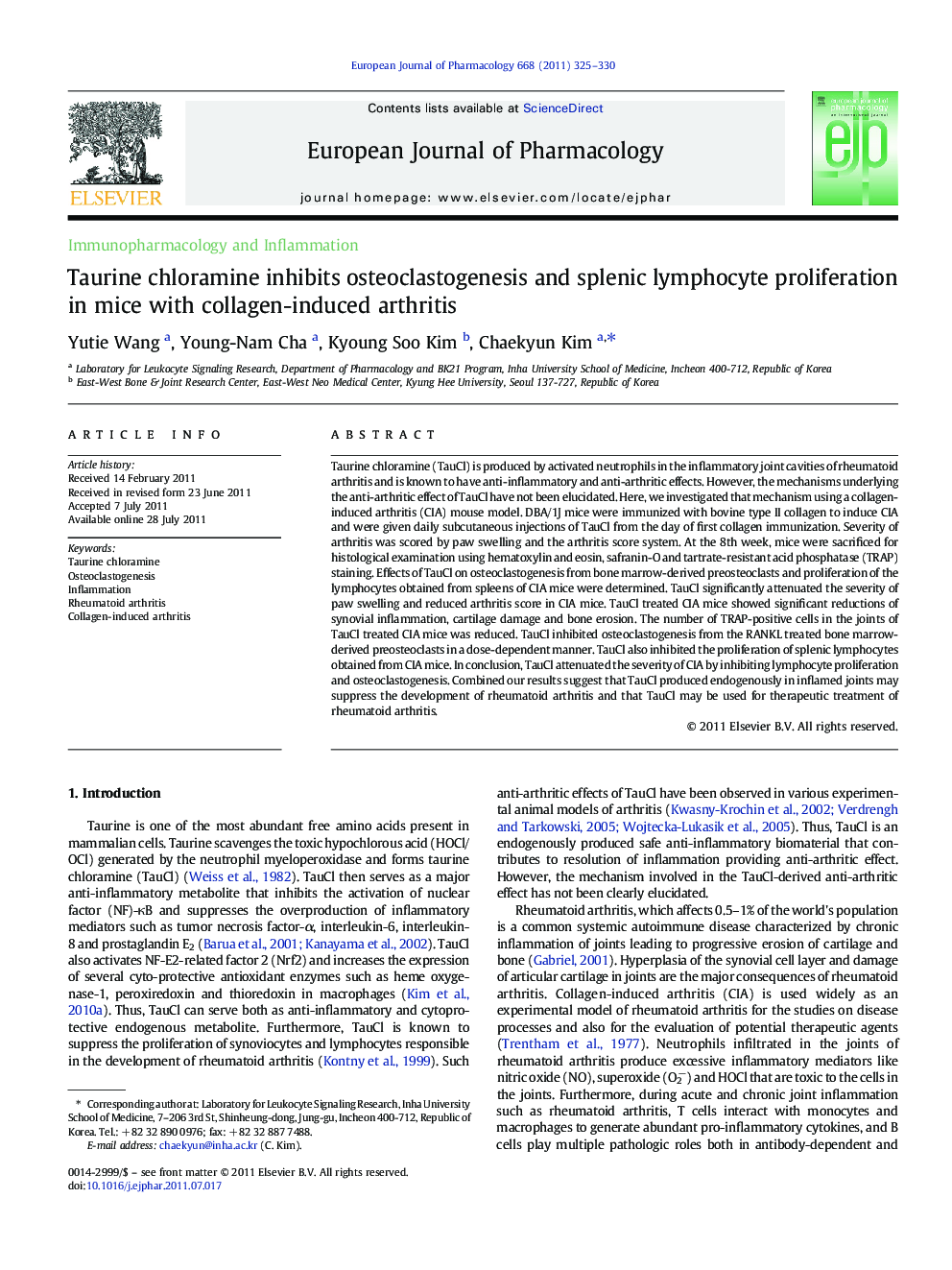| Article ID | Journal | Published Year | Pages | File Type |
|---|---|---|---|---|
| 5830116 | European Journal of Pharmacology | 2011 | 6 Pages |
Abstract
Taurine chloramine (TauCl) is produced by activated neutrophils in the inflammatory joint cavities of rheumatoid arthritis and is known to have anti-inflammatory and anti-arthritic effects. However, the mechanisms underlying the anti-arthritic effect of TauCl have not been elucidated. Here, we investigated that mechanism using a collagen-induced arthritis (CIA) mouse model. DBA/1J mice were immunized with bovine type II collagen to induce CIA and were given daily subcutaneous injections of TauCl from the day of first collagen immunization. Severity of arthritis was scored by paw swelling and the arthritis score system. At the 8th week, mice were sacrificed for histological examination using hematoxylin and eosin, safranin-O and tartrate-resistant acid phosphatase (TRAP) staining. Effects of TauCl on osteoclastogenesis from bone marrow-derived preosteoclasts and proliferation of the lymphocytes obtained from spleens of CIA mice were determined. TauCl significantly attenuated the severity of paw swelling and reduced arthritis score in CIA mice. TauCl treated CIA mice showed significant reductions of synovial inflammation, cartilage damage and bone erosion. The number of TRAP-positive cells in the joints of TauCl treated CIA mice was reduced. TauCl inhibited osteoclastogenesis from the RANKL treated bone marrow-derived preosteoclasts in a dose-dependent manner. TauCl also inhibited the proliferation of splenic lymphocytes obtained from CIA mice. In conclusion, TauCl attenuated the severity of CIA by inhibiting lymphocyte proliferation and osteoclastogenesis. Combined our results suggest that TauCl produced endogenously in inflamed joints may suppress the development of rheumatoid arthritis and that TauCl may be used for therapeutic treatment of rheumatoid arthritis.
Keywords
Related Topics
Life Sciences
Neuroscience
Cellular and Molecular Neuroscience
Authors
Yutie Wang, Young-Nam Cha, Kyoung Soo Kim, Chaekyun Kim,
